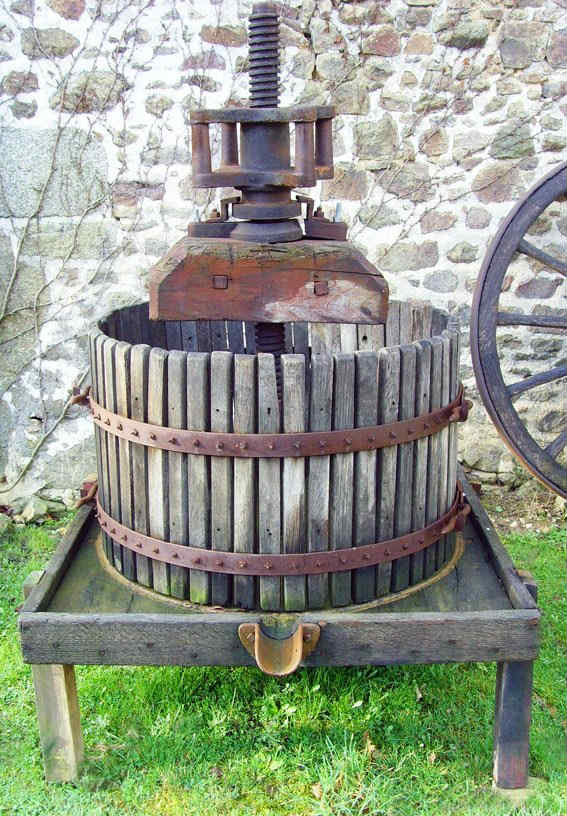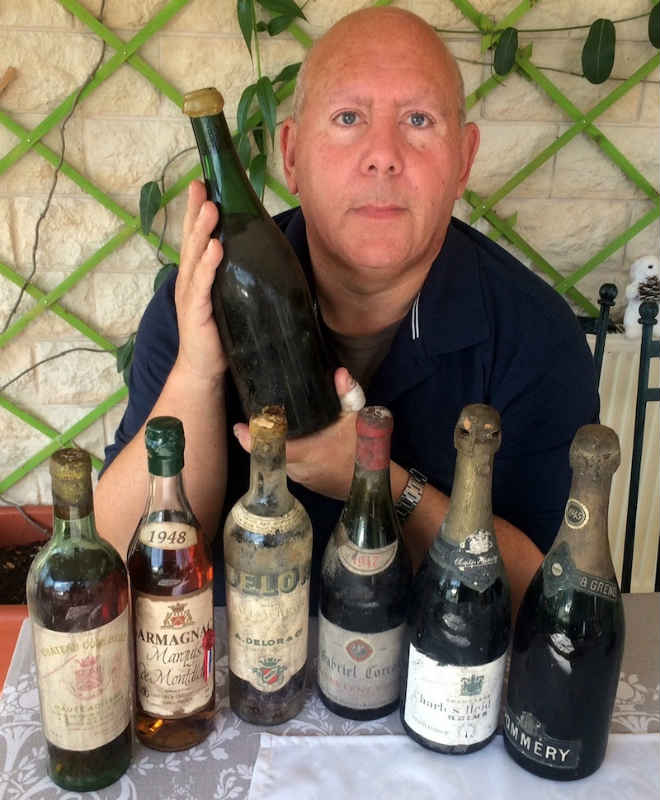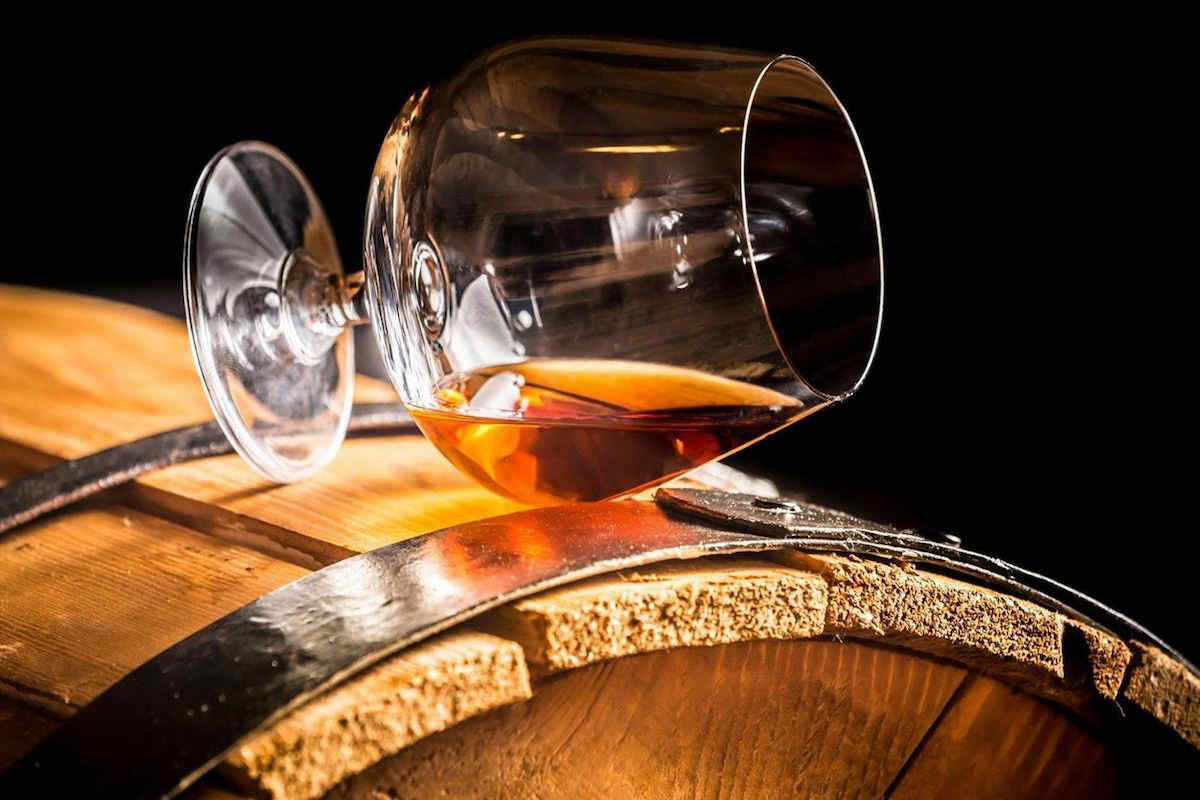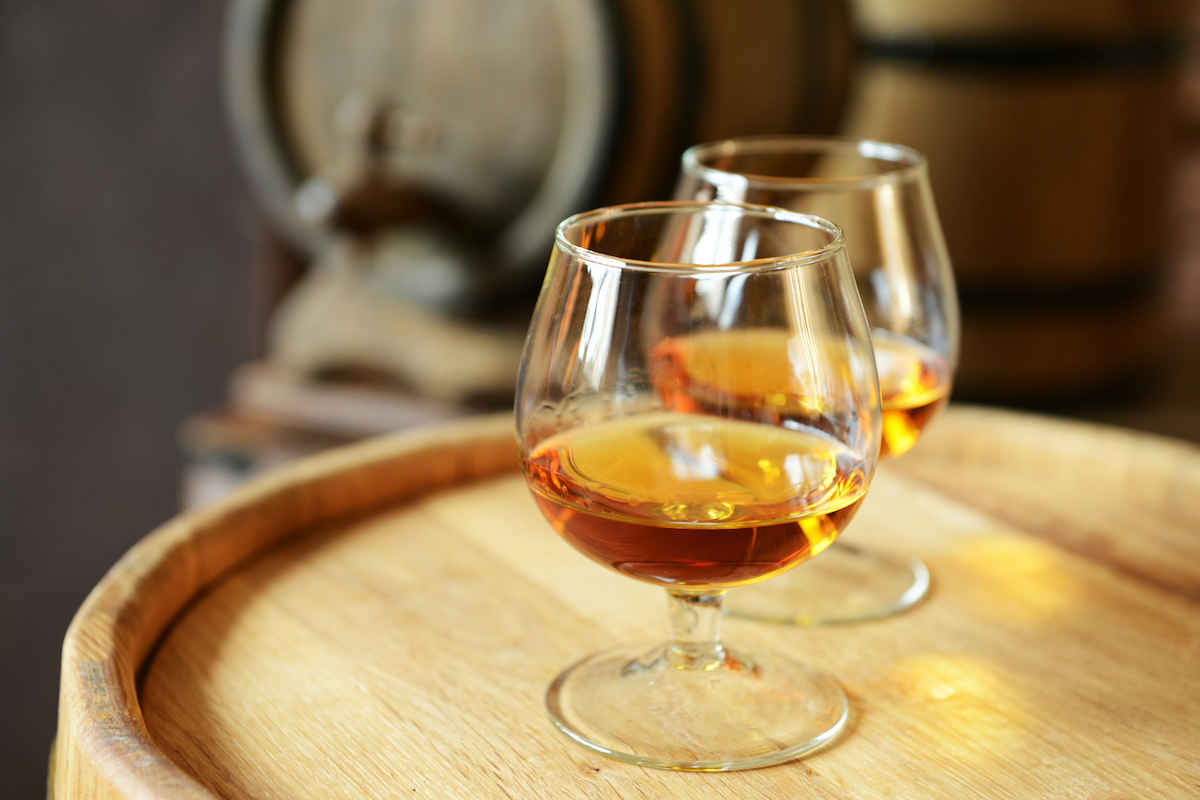In both its wine and spirit-making industries, the soil of France plays a starring role. When that soil became occupied territory during WWII, some of the people who worked it did whatever they could to aid its liberation, even using their pre-war trade as a weapon of resistance.
One of those individuals was Albert Dubosq, a Calvados distiller who owned an orchard just 20 miles south of Omaha Beach, near the town of Littry. The operator of a mobile cider press and Calvados still, Dubosq used his travel privileges to pass secret messages written in cider to contacts in the French Resistance. His story was told to me by his grandson François Gauthron, a WWI and WWII historian, battlefield tour guide, and author of the recently published Colors of War: Not Black and White but Nuances of Gray.
The Calvados Pioneer
It was because of the First World War that the Dubosq family found themselves in the apple brandy business. During the conflict, the French government subsidized apple orchards and encouraged farmers to produce alcohol that could be used to make munitions as well as for medical purposes.
Dubosq was at war himself, as were his two brothers. He survived the Verdun and Meuse-Argonne campaigns, but was the only brother to return.
At the family farm he found an abundance of young apple trees, and faced a decision. Would it revert to being a cattle-and-milk farm as it was before the war, or would he produce cider and Calvados? Dubosq chose the latter, in no small part because of the “very, very bad alcohol” he had been given during the war, and the knowledge that returning veterans would increase demand.

An old French cider press.
Many of the small orchards within the Calvados region did not have cider presses or stills of their own. Dubosq saw the business opportunity, and constructed a mobile cider press that could be pulled by horses. He would bring it to an orchard or farm to make cider and return a few months later with a mobile still to turn the cider into Calvados.
For these services, Dubosq would be paid in a mixture of cash and Calvados. He’d then blend the Calvados he received with his own, making for higher quality spirits.
“He was a pioneer in many ways,” says Gauthron.
The farm’s livestock was soon being used to feed only the family itself, and Calvados became Dubosq’s full-time job. Gauthron’s grandmother oversaw sales, taking huge barrels of the spirit to sell at open markets.
Life Under Occupation
The 1940 German invasion and subsequent occupation did not harm the family business. It boomed as the German army purchased Calvados and distributed it to thirsty troops in far-flung battlefields.
“I don’t know if it’s 100 percent true or not, but some of Grandpa’s Calvados ended up on the Eastern Front, like most of the French wines from Bordeaux and Burgundy,” says Gauthron.
Despite the patronage, Dubosq was not enamored with his new clients. His WWI experience, and no doubt the deaths of his brothers, had fostered anti-German sentiment.
“Grandpa was always claiming that a good German is a dead German,” Gauthron says.
A Valuable Asset
But it was selling Calvados to the Germans that made Dubosq an attractive asset for the French Resistance, which contacted him in 1942. Gauthron classifies his grandfather as being a “passive,” rather than “active” member of the French Resistance, the latter being those who worked in the resistance full-time.

Gauthron with his grandfather’s collection of wines, Champagnes and Calvados. The bottle of Calvados he holds was distilled by his grandfather in 1938 and aged in an oak barrel until 1974.
Dubosq kept his activities secret from his wife, who unknowingly served as his information source. She spoke fluent German, and would hear of which local areas had become military “no-go zones” from the German military personnel she did business with. She’d tell Dubosq to avoid these areas during his travel, and he would relay the information to higher-ranking resistance members who would investigate them and gather more information on German activities.
The other condition that made Dubosq a valuable asset was his ability to travel. Because of his business, he had papers that allowed him to move freely between orchards and farms. Other farmers and Calvados makers were involved in the resistance, and would pass along his messages and occasionally radios to higher authorities after receiving them.
The methods Dubosq employed to pass messages were uniquely tied to the Calvados industry. He would write information on cigarette paper, using cider as an invisible ink: the letters would only become visible once the paper was heated. Afterward, the papers, or radios, would be stashed within hollowed logs. These logs offered concealment and a convenient self-destruct method: if Dubosq were ever in danger of being found out, he could simply toss the logs into the burning furnace that powered his Calvados still.
Close Calls
Dubosq did have a few close shaves. In one instance, he was about to pass off a radio to a farmer when he saw French and German police approaching. He threw the radio into the still’s burning furnace, and waited out the fruitless police inspection. But just as the police were leaving, the radio exploded inside the furnace, producing a sound like a shotgun blast. The startled police returned, and Dubosq could only alleviate their suspicions by claiming German soldiers must have dropped bullets into his woodpile.
The cause of his other run-in wasn’t snooping cops, but being over-served.

“He was doing this apple brandy network continuously. A little taste of that, a little sip of this Calvados, oh try the 10-year-old, try the 15-year-old, and so on, so he usually came home a little drunk,” Gauthron says.
One evening found Dubosq particularly pickled, leaving the navigation to his horse as he tried to doze it off. The horse knew the way back to the farm—but its instinctual route now ran straight through a no-go zone. Dubosq was immediately arrested for trespassing, and to make matters worse, his captors included members of the elite SS. He was taken to a police station for interrogation.
Dubosq had reason to worry, as he’d been riding with a message-filled log. But in a lucky twist of fate, A German solider familiar with his farm offered to return the horse while he was incarcerated. In doing so, the solider unknowingly transported the secret documents that could have cost Dubosq his life. He was released a few days later.
Liberation
On June 6, 1944, the Allied invasion of Normandy commenced. Dubosq was elated, but his wife was less joyous—at first.
“She was afraid she would lose a huge amount of business,” Gauthron says. “But soon the farm was liberated. Grandma realized that Americans love cider and Calvados, and the business kept going on.”
In less than a year the war was over, but more time would have to pass before Dubosq would speak openly about his experiences. According to Gauthron, his grandfather held his silence for 20 years.
“Everybody did the same thing. They keep secrets for many years,” Gauthron says.
Albert Dubosq would continue to make Calvados at his farm, and passed away in 1984 at the aged of 96.




Lynn and I enjoyed you guidance while we were overlooking her dad’s career as a cartoon in the invasion. My good friend introduced me To “calva” in 1980. His family produced in Normandy his name Antoine de la garde. They no longer produce by he suggested the Pierre huey from the manor la briers fed fontaines.